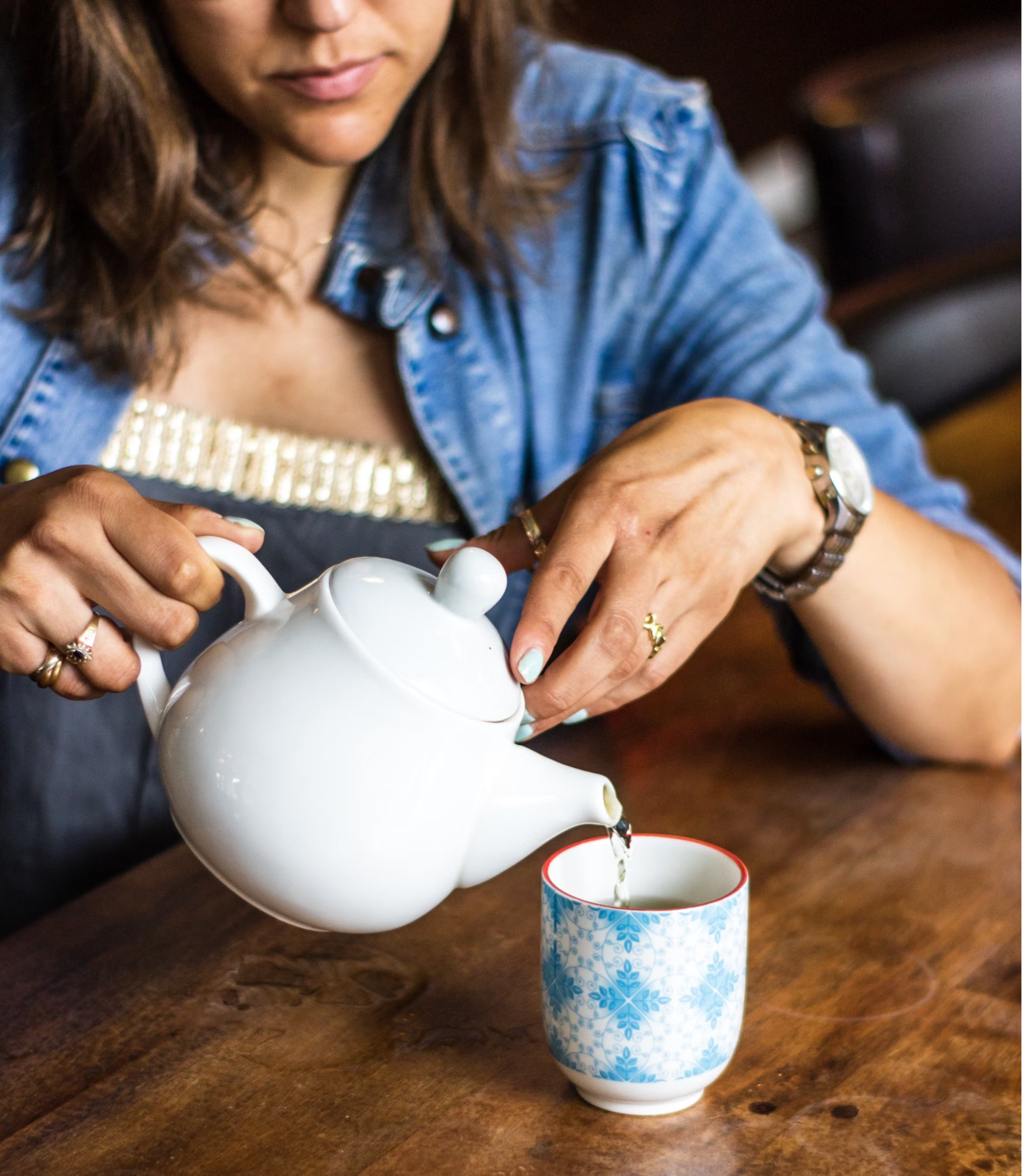
The unsettling reality is that millions worldwide wake up each day unaware they're sitting ducks for heart disease and stroke, two notorious assassins often triggered by the sneakiest of saboteurs: high blood pressure. While medications are often prescribed to manage and lower blood pressure, incorporating natural remedies like tea into your routine can also provide significant benefits.
Whether you’re looking for a flavorful way to relax or a natural addition to your wellness routine, tea may be the solution you’ve been seeking. Nelson’s Tea, a trusted loose-leaf tea store, offers premium teas to help you on your journey to better cardiovascular wellness. Let’s explore how tea can help manage high blood pressure and discover the best teas to include in your diet.
Understanding High Blood Pressure
High blood pressure occurs when the force of blood flowing through your arteries is consistently too high. It's like a constant bully, pushing and pounding on your heart and blood vessels. Blood pressure is measured using two key numbers: diastolic and systolic.
Diastolic Blood Pressure
Diastolic measures the pressure in your arteries when your heart rests between beats. A normal diastolic reading is typically below 80 mmHg. Elevated diastolic can indicate that your blood vessels aren’t relaxing correctly, increasing the risk of hypertension over time.
Systolic Blood Pressure
Systolic is the top number in a blood pressure reading and measures the pressure when your heart beats. A normal systolic reading is below 120 mmHg. High systolic blood pressure is often linked to stress, vascular inflammation, or a lack of blood flow regulation.

How Can Tea Help With High Blood Pressure?
A cocktail of flavonoids, catechins, and antioxidants awaits within tea's warmth, working tirelessly to fortify heart health and rev up blood flow. Clinical trials and systematic reviews have shown that regular tea consumption can positively affect diastolic and systolic blood pressure levels. Here’s why tea is a powerful ally in managing blood pressure:
-
Relaxes Smooth Muscle Contraction: Certain teas, like hibiscus, help blood vessels relax, improving blood flow and reducing vascular inflammation.
-
Provides a Hypotensive Effect: Black and green tea contains compounds that reduce blood pressure by decreasing the tension in arterial walls.
-
Promotes Cardiovascular Health: The antioxidants in tea reduce oxidative stress and lower cholesterol levels, both of which contribute to a healthier heart.
Drinking tea daily, regular exercise and a balanced diet can make a noticeable difference in managing blood pressure.
The Science Behind Tea and Blood Pressure
Scientific research supports tea’s ability to support blood pressure regulation and shows its potential as a natural tool for managing elevated blood pressure. With heart disease at the forefront of many health concerns, scientists have been busy examining the effects of various teas on cardiovascular wellness. One common detail arose in these studies: tea drinkers tend to see a decline in blood pressure as the years go by.
For instance, a clinical trial with a control group and an intervention group demonstrated the positive effect of tea consumption on both systolic and diastolic blood pressure. Participants in the intervention group who drank green tea daily for four weeks showed significant improvements compared to those in the control group. The study emphasized how regular tea consumption aids in relaxing blood vessels, reducing strain on the arteries, and supporting healthy circulation.
These findings highlight that incorporating tea into your routine along with lifestyle changes like exercise and a balanced diet can be a practical step toward managing high blood pressure naturally.

5 Best Teas to Lower High Blood Pressure
When it comes to teas, these five options stand out for their health benefits and proven blood pressure lowering effects in clinical studies.
1. Hibiscus Tea
Hibiscus tea, made from the Hibiscus sabdariffa plant, is a powerhouse for reducing high blood pressure. It has a tart flavor and is rich in antioxidants that promote blood pressure regulation. Drinking hibiscus tea every day can lead to a substantial drop in blood pressure, with many people noticing that both systolic and diastolic numbers are taking a welcome plunge.
Its ability to relax blood vessels and reduce vascular inflammation makes it a favorite among herbal teas for heart wellness. Brew hibiscus tea with warm water for the best results, and enjoy it as a refreshing addition to your daily routine.
2. Green Tea
Loose-leaf green tea is well-known for its numerous benefits for your health, including lowering blood pressure. Rich in catechins and other antioxidants, green tea improves blood flow and decreases vascular inflammation.
For maximum benefits, steep loose-leaf green tea from Nelson’s Tea in hot water (not boiling) to preserve its delicate compounds. Pair it with a heart-healthy snack for a soothing break during the day.
3. Chamomile Tea
Chamomile tea is a calming herbal tea that supports healthy blood pressure by reducing stress and promoting relaxation. Its ability to relax smooth muscle contraction in blood vessels can help lower blood pressure levels naturally. Brew it with tea accessories like an infuser from Nelson’s Tea, and enjoy its mild, soothing flavor as you wind down for the night.
4. Black Tea
Loose-leaf black tea, derived from the Camellia sinensis plant, contains flavonoids that support cardiovascular health and circulation. Regular consumption of black tea has been linked to a significant reduction in blood pressure, particularly in systolic readings.
Despite their slightly higher caffeine content, these tea leaves' antioxidant properties make them a powerful ally in managing high blood pressure. Brew them strong or light, depending on your taste, and enjoy hot or iced for a versatile beverage.
5. Oolong Tea
Oolong tea, a semi-oxidized tea also made from the Camellia sinensis plant, combines the benefits of black and green tea. Its antioxidants improve blood circulation and reduce blood pressure levels by relaxing blood vessels.
Loose-leaf oolong tea is a premium option for those looking for a flavorful and effective way to support heart wellness. For the best experience, brew it with hot water and enjoy its smooth, rich taste.
Potential Risks and Interactions
While tea is generally safe, it’s essential to be mindful of potential interactions with medications or existing health conditions:
- Caffeine Sensitivity: Teas like green and black tea contain caffeine, which may not suit everyone. Opt for herbal teas like hibiscus or chamomile if caffeine is a concern.
- Medications: Some teas may interact with blood pressure medications. Consult a healthcare professional before adding new teas to your routine.
- Overconsumption: Drinking excessive amounts of tea may lead to unwanted side effects, so stick to moderate, regular tea consumption.
By being mindful of these potential risks and enjoying tea in moderation, you can safely incorporate it into your routine as a natural and effective way to support healthy blood pressure.
Brew Better Blood Pressure Levels
High blood pressure doesn’t have to control your life. Incorporating teas like hibiscus, green tea, chamomile, black tea, and oolong tea into your daily routine can significantly reduce blood pressure and improve heart health. These teas are not just delicious — they’re powerful tools for managing high blood pressure naturally.
Nelson’s Tea offers various premium loose-leaf options, perfect for supporting your health and enjoying a flavorful cup. Visit their online store to buy loose-leaf teas and tea accessories that fit seamlessly into your lifestyle. Take the first step toward better heart health — start brewing today!
These statements have not been evaluated by the Food and Drug Administration. This product is not intended to diagnose, treat, cure, or prevent any disease.

